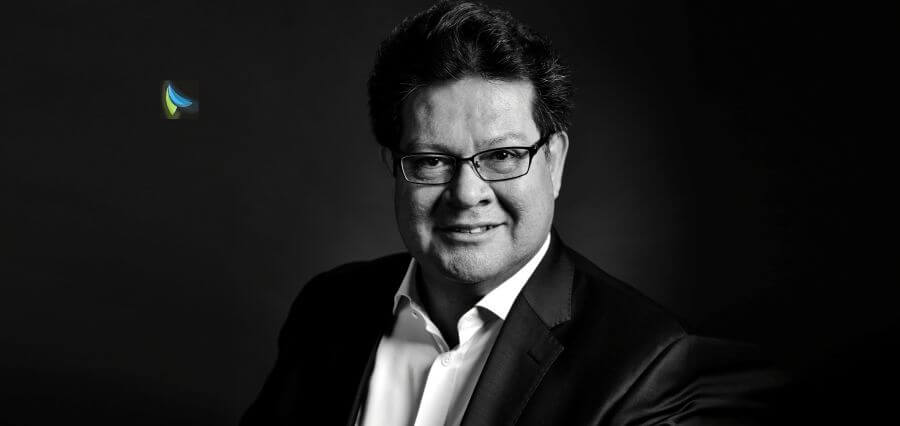Navigating through decades of evolving risk management practices has been a paramount endeavor within a dynamic industry landscape. As professionals seek to fortify their expertise in mitigating uncertainties and safeguarding organizational interests, individuals like Fernando Dyer emerge as influential figures in shaping contemporary risk management strategies.
Fernando Dyer, a seasoned Corporate Chief Risk and Compliance Officer, brings a wealth of experience and insight garnered from his extensive journey spanning various multinational corporations. From his early days as an external auditor to his pivotal roles in global risk assessment and implementation of compliance frameworks, Dyer’s trajectory underscores a relentless pursuit of excellence and innovation in risk governance.
UNACEM Corp. S.A.A., a prominent player in the industry, stands at the forefront of integrating cutting-edge technologies into its risk management arsenal. Through adept utilization of analytical tools and active engagement in industry forums, the company not only navigates emerging risks but also contributes significantly to the advancement of risk management practices on a broader scale.
Let’s delve in to learn more:
Navigating Decades of Evolving Risk Management
Although Fernando Dyer’s name was not yet widely recognized in the field, risk management has consistently been a cornerstone of his professional journey. Beginning as an external auditor in the late 1980s, he subsequently assumed roles in cash flow management and project evaluation during the 1990s at DHL in the European Region. Transitioning to J.T.I. in 2000, Dyer’s oversight of risk assessment expanded globally, culminating in his leadership of the global implementation of J-SOX by 2005, with a focus on financial reporting risk management. By 2008, Dyer’s purview extended beyond finance to encompass non-financial risk areas such as Anti-corruption, International Sanctions (OFAC, SECO), and Compliance across more than 100 countries. In 2017, his responsibilities further evolved to include a comprehensive risk assessment of engineering and construction projects.
Exploring Risk Management
In pursuit of professional growth and a deeper understanding of risk management principles, Fernando Dyer attended a course at INSEAD in the early 2000s. This experience sparked his curiosity and provided valuable insights that would shape his future roles. Subsequently, his M.B.A. studies in Geneva in 2012 further refined his approach to both financial and non-financial aspects of risk management.
Leadership in Comprehensive Risk Management
In his professional journey, Fernando Dyer has evaluated numerous project risks during his tenure at DHL and J.T.I. He streamlined project risk evaluation processes and developed a risk-based approval delegation matrix while at J.T.I. Additionally, he played a co-leadership role in implementing JSOX risk assessment globally at J.T.I. Fernando also spearheaded the implementation of Anti-corruption, sanctions, and compliance risk management programs in listed companies in Tokyo and New York. Furthermore, he successfully implemented two integral risk management programs in other listed companies.
Navigating Risk Management Challenges in S.M.E.s
In his role as Corporate Chief Risk and Compliance Officer at UNACEM Corp. S.A.A., Fernando Dyer faces the significant challenge of harmonizing a risk management program with the company’s culture. This task is further complicated when dealing with S.M.E.s, where the redistribution of responsibilities regarding certain aspects of risk management becomes necessary.
Navigating Uncertainties
In light of the pandemic and climate change, risk management principles have come under scrutiny. The heightened uncertainties surrounding key variables demand a more robust approach, one that goes beyond traditional methods to deliver value to both businesses and society.
Optimizing Risk Management and Oversight
Fernando oversees the distribution of risk management responsibilities across the organization’s three lines of defense. He maintains an equilibrium between risk control and agility while assuming the oversight role of the Board of Directors concerning critical company risks.
Balancing Expertise and Collaboration
Risk management necessitates an individual who embodies curiosity, data-driven decision-making, reliability, process orientation, and rigor. Simultaneously, they must possess strong collaborative skills to effectively integrate and manage conflicts within the organizational framework.
Navigating Risk with Data-Driven Collaboration
In the realm of risk management, there is a demand for an individual who demonstrates curiosity, a data-driven approach, reliability, process orientation, and rigor. Additionally, they must possess collaborative skills to effectively integrate and navigate conflicts. Decision-making in this context is guided by data, business strategy, and the risk appetite of the Board of Directors.
Enhancing Risk Management with Technology & Collaboration
The organization is integrating emerging technologies into its risk management strategies by enhancing its capacity to generate and collect business data within analytical tools. Additionally, it contributes to the advancement of risk management practices within the broader industry by participating in national and international forums and exchanging insights and best practices with peers.


